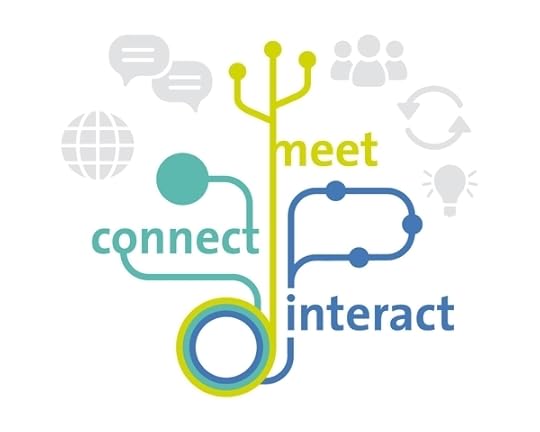Using Technology to Learn from Each Other
In 2006, “You” were chosen as Time Magazine’s Person of the Year. Time wanted to recognize the millions of people around the globe who were generating unique content on the world’s blogs, social networks, and personal websites, and as such, a more fitting choice could not have been made. The Time editors stated in explaining their choice:
It’s a story about community and collaboration on a scale never seen before … It’s about the many wresting power from the few and helping one another for nothing and how that will not only change the world, but also change the way the world changes. The tool that makes this possible is the World Wide Web … The new Web is a very different thing. It’s a tool for bringing together the small contributions of millions of people and making them matter. Silicon Valley consultants call it Web 2.0, as if it were a new version of some old software. But it’s really a revolution.
Over the last decade, new Internet technologies such as YouTube, Facebook, Twitter, Blogs, Podcasts, Pinterest, Instagram, and LinkedIn have unleashed our abilities to create and share our expertise, insights, and wisdom with our fellow citizens easily and economically. But yet when the Time Magazine choice was released, it was heavily criticized. Why? Perhaps because it edged out various high-profile events around the world and numerous people making dramatic impacts at a global level.
In retrospect, however, it should be clear this was a bold and insightful pick—the accessibility of the world’s collective knowledge through our new digital technologies has and will continue to dramatically change our world. Those of us who can tap into this seismic shift will have a sizable advantage on both a personal and professional level.
Of course, “amateur experts” or enthusiasts have always been among us. We’ve all known people who have deep insight into various hobbies and interests and have developed expertise in those areas. Now, if we happened to live in the same area as these people, we could perhaps attend a lecture or group meeting and learn from their expertise (assuming a group exists, and that the particular person was willing and able to share that knowledge). But if not, we would be out of luck.
We’ve also had access for many years to specialty magazines from which we’ve benefited. These publications make efforts to harness expertise from around the globe; however, they can only do so much with a limited amount of time, copy space, and money. They also tend to focus on covering information from professionals in the field, rather than from advanced amateurs who sometimes know quite a bit as well.
Professional views are always valuable; after all, these are people who get paid for their efforts and do it often (as their primary occupation). Amateurs, however, may likewise spend a great deal of time on the subject, and thereby develop similar levels of expertise. They may also come with different experiences and perspectives than professionals, who often need to stay in a certain mold to be in alignment with the needs of their profession. Amateurs can therefore be a bit freer, and this can provide us with interesting takes on a given topic that we might not otherwise receive.
Of course, not all amateur content is created equal and we certainly see a lot of variability. Think of YouTube as an example. There is no doubt that there’s a significant amount of poorly presented and untrue information floating around on the Web. Anyone with an “Internet microphone” can say whatever they like and they have no editor or publisher to ensure that certain quality levels are being met. So it is certainly a “buyer beware” situation.
At the same time, there’s a fair amount of “peer-policing” that goes on. If someone posts something silly or flat out wrong on a blog or chat board, fellow readers will often reply to voice their objections. Sometimes that devolves into a bunch of mud slinging, but done correctly it keeps people on their toes.
With all of that said, there are substantial efforts made by individuals and groups to present meaningful information, insight, and resources through podcasts, blog articles, Wikis, online courses, YouTube-based video training, and more. And certainly, some of the non-serious stuff is fun as well.
Whether you’re seeking fun or education, the trick is always to find the high-quality content and not get bogged down in low-value material. We need to be proactive in knowing what we want to learn and then utilize better internet search techniques to find the most useful information.
Along with using search engines, there are also many sites dedicated to helping us find the content most relevant to our interests. So next we’ll look at some of the different ways for tapping into information, expertise, and entertainment from the collective “You.”
Blogs and Websites
Blogsearch
http://www.google.com/blogsearch
Here you can look at the recommendations from the more traditional specialty publications, where they highlight which online media they feel are of high quality.
Alltop
http://alltop.com
Alltop describes itself on its website as the “online magazine rack” of the Web. By subscribing to thousands of sources, they aim to provide “aggregation without aggravation.” Alltop pages are essentially starting points as opposed to destinations, where the goal is to enhance your online reading by displaying stories from sources that you’re already visiting, as well as helping you discover sources that you didn’t know existed.
Blog Catalog
http://www.blogcatalog.com
The blog catalog is a great tool to browse by topic.
Social Media
You’re most likely well versed on many different social media platforms. For this article, then let’s focus on how to get more out of one of them in particular – Twitter. In terms of learning from each other, Twitter can be an especially good option. The reason is that Twitter has evolved for many people from being a place to tell others what you had for breakfast, to sharing useful content (links to articles, reports, presentations, and more) in their area of expertise or interest. Through carefully choosing who to follow, you can dramatically amplify your knowledge in a certain area through being introduced to certain content that you may not have located on your own.
Here are five Twitter tips you can use right away:
Use TwitterLocal (http://www.twitterlocal.net) and Nearby Tweets (http://nearbytweets.com) to find tweets about information in your area.
Use ExpertTweet (http://experttweet.com) to locate experts in your area of interest. In order to find new and interesting people to follow, look at who high-profile tweeters and experts are following; you can then follow them yourself.
Wefollow (http://www.wefollow.com) is a great site to find people to follow in targeted areas. Beginning as a Twitter directory in 2009, it has since grown to a community of over 1.3 million users who share their interests when they join, allowing you to search for people by interest and sort them by what’s called their Prominence Score. This ranking system lets you quickly discover, follow, and learn from the most prominent people around the world.
Use Twitter’s advanced Search Option to help locate people to follow based on their background, schools attended, geographic area, etc.
Stay abreast of trends via Twitter’s Trending option (on the Home, Discover, and Search pages on the Web, Trends appear in the column on the left side of the page.) You can also use third party tools such as TrendsMap (http://trendsmap.com).
MeetUps
We’ve thus far been speaking about interacting and learning from others in our online communities; however, there comes a time when we need to turn off the electronics and get out and meet people in person. The problem is that we often don’t know how to connect with people with similar interests, or we don’t have time in our ultra-fast and busy lives to seek out these like-minded people. This is where Meetup.com (http://www.meetup.com) comes into play. It’s a great example of using the communication and coordination advantages of the Internet to make our face-to-face lives better.
Self-described as “the world’s largest network of local groups,” Meetup makes it easy for anyone to organize a local group or find one of the thousands already meeting up in person. As of this writing, there are more than 9,000 groups in local communities providing get- togethers each day, each with the aspiration of improving the members or their communities. Meetup’s goal is to help people change their personal world—or the whole world—by organizing themselves into groups that are powerful enough to make a difference.
I’ve been using Meetup.com for a while now and can’t say enough good things about it. After registering for free, you can identify your interests and Meetup.com will suggest groups for you in your local area (you can designate what geographical radius you would like to search). You can then view each recommended group, its objective, the profile of its members, and the listing of recent events or meetings the group has held to determine if it’s a good fit for you.
Some groups were specifically started on meetup.com while others existed previously and now list themselves on the site to help coordinate member activities. Definitely give it a try.
The Life Hacking Community
Life Hackers are those among us who have decided to re-examine the accepted modes of living, working, and being in our world. They are deconstructionists on a life scale and are willing to challenge accepted models of what it means to live a fulfilling and rewarding life in the 21st century.
Some life hackers have become quite high profile, such as author and entrepreneur Tim Ferris. Tim wrote a classic life-hacker book called The 4-Hour Work Week (the title alone should put you in the life-hacker mind frame). An entire work week in four hours? you ask. How can that be accomplished?
Tim answers that question by applying elements of some of the topics in this book, such as systems thinking and the latest low-cost technology, apps, and services. Tim also writes an excellent blog and has published two additional books: The 4-Hour Body and The 4-Hour Chef. In the latest installations in the series, he teaches how to more quickly and efficiently attend to two of our most important life areas —keeping our bodies in shape and cooking well—in a fast-paced society.
Tim, of course, isn’t the only life hacker around; numerous others have decided to get off the traditional path and explore alternative ways of living. Most are people like you and me who simply decided to ask questions the rest of us haven’t contemplated yet. While some life hackers focus on how to streamline small things in our day-to-day lives, others approach bigger-picture questions such as: Why am I doing this or that at all?
The good news is that they’re prodding us to ask our own questions and providing us with specific answers as guides. For an introduction to the world of life hackers, check out this video overview on LifeHacker.com: http://lifehacker.com/5980840/life-hacking-for-newbies- explained-in-video-form
These are just a small sampling of ways to tap into the global explosion of knowledge, expertise, and guidance now being made easily available to anyone with an internet connection. Skillfully done, we are all in a position to radically accelerate our learning and personal growth curves like never before. You can learn many more tips on Learning from Each Other in chapter eight of my book – Think Smarter in a Digitally Enabled World: A 21st Century Life Manual for Amplifying Your Knowledge, Achieving Your Potential & Changing the World.
Jay Kshatri
www.ThinkSmarterWorld.com
The post Using Technology to Learn from Each Other appeared first on Think Smarter World.








